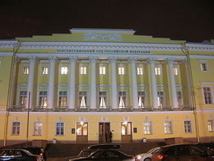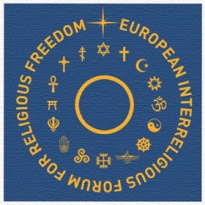
HRWF (13.07.2013) - On December 5, 2012, the Constitutional Court of the Russian Federation firmly declared the Constitution guarantees freedom of conscience and freedom of religion as a fundamental personal (civil) right in Russia (Article 28). The Court ruled the Constitution holds religious freedom as a personal matter and one of the most important forms of spiritual and moral self-determination. The Constitution guarantees the right to profess any religion or no religion at all and to act accordingly.
The Court held freedom of religion cannot be limited exclusively to personal (private) life. It comprises private and public forms. It is inseparable from other rights and freedoms enshrined in the Constitution. Above all, freedom of religion is connected with the rights to association and to freedom of assembly. The Court noted this is an inherent element of the legal status of an individual in the Russian Federation. The state must provide protection, including legal protection, for the rights and freedoms of an individual citizen (Articles 1, 64, 456(1), and 46 of the RF Constitution).
The Court stressed there is no state religion in Russia. The Constitution declares the Russian Federation is a secular state. Religious associations are separate from the state and equal before the law (Article 14). The right to freedom of religion assumes a very important social significance and obligates the Russian Federation (Article 1(1) and Article 7(1) of the RF Constitution) to ensure the profession of different religions in a neutral and unbiased manner. The aim is to achieve peace and unity among citizens, maintain public order, and religious tolerance.
The legislator and law enforcement agencies in the Russian Federation, including the courts, must provide a reasonable balance between the interests of believers and religious associations and those of other people and state institutions. The state must prevent arbitrary and unwarranted interference in the activity of religious organizations.
The Constitutional Court noted international legal instruments that recognize freedom of conscience and religion are a constituent part of the Russian Federation legal system. These include the European Convention for the Protection of Human Rights and Fundamental Freedoms (Article 9) and the International Covenant on Civil and Political Rights (Article 18).
The Constitutional Court further relied on decisions of the European Court of Human Rights to endorse the state's obligation to protect, including legal protection, the rights and freedoms of its individual citizens. The Constitutional Court cited decisions that show the European Court believes freedom of thought, conscience, and religion together with freedom of assembly comprise the foundation of a democratic society. Believers should be allowed to assemble freely without unjustified state interference.
The Constitutional Court issued its strong decision in favor of religious freedom in response to an application by the Ombudsman for Human Rights in the Russian Federation. The Ombudsman asked the Court whether the state had violated the constitutional rights of two Jehovah's Witnesses when authorities used regulatory procedures for holding rallies to convict them of administrative violations.
The two men tried to organize peaceful religious assemblies of believers. The Court ruled that state authorities and the courts had interfered with their freedom of religion guaranteed by the Constitution. The Court ordered a review of their cases.
The Constitutional Court showed its strong determination to uphold religious freedom and intervene when necessary by ordering amendments be made to prevent using regulations for conducting rallies to raise obstacles to impede holding peaceful religious assemblies. The Court ruled religious assemblies can be held without prior notice to and permission from state authorities. The Court ordered state authorities, including courts, should be guided by the Russian Constitution and the judgment of the Constitutional Court. They must not wait until amendments are made to the current regulation. The decision of the Constitutional Court is final and not subject to appeal.







 More than 100 NGOs and personalities write to French Parliamentarians about the law on cults
More than 100 NGOs and personalities write to French Parliamentarians about the law on cults